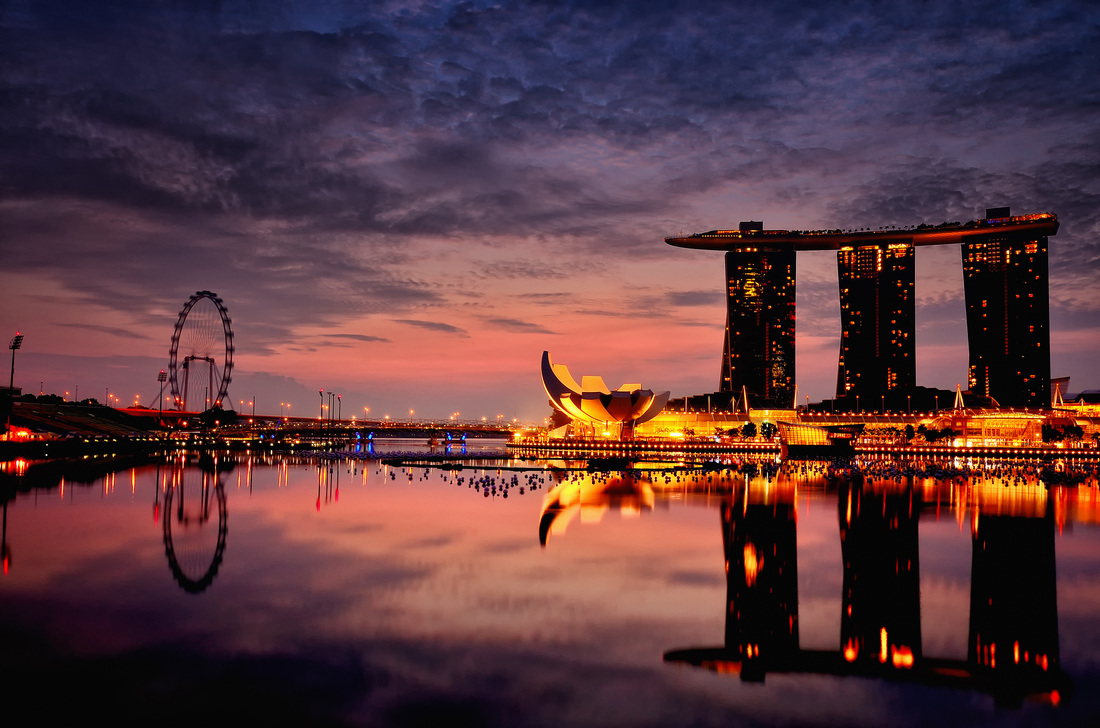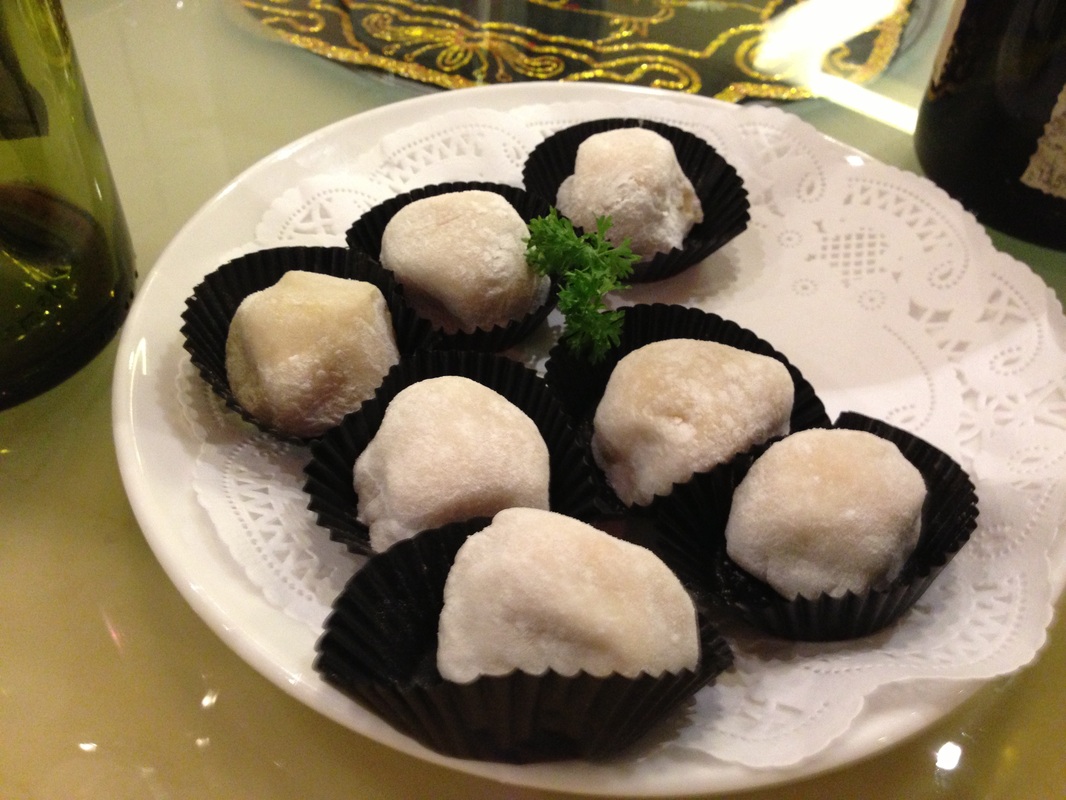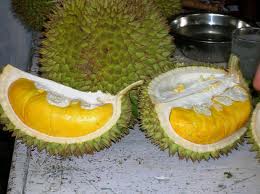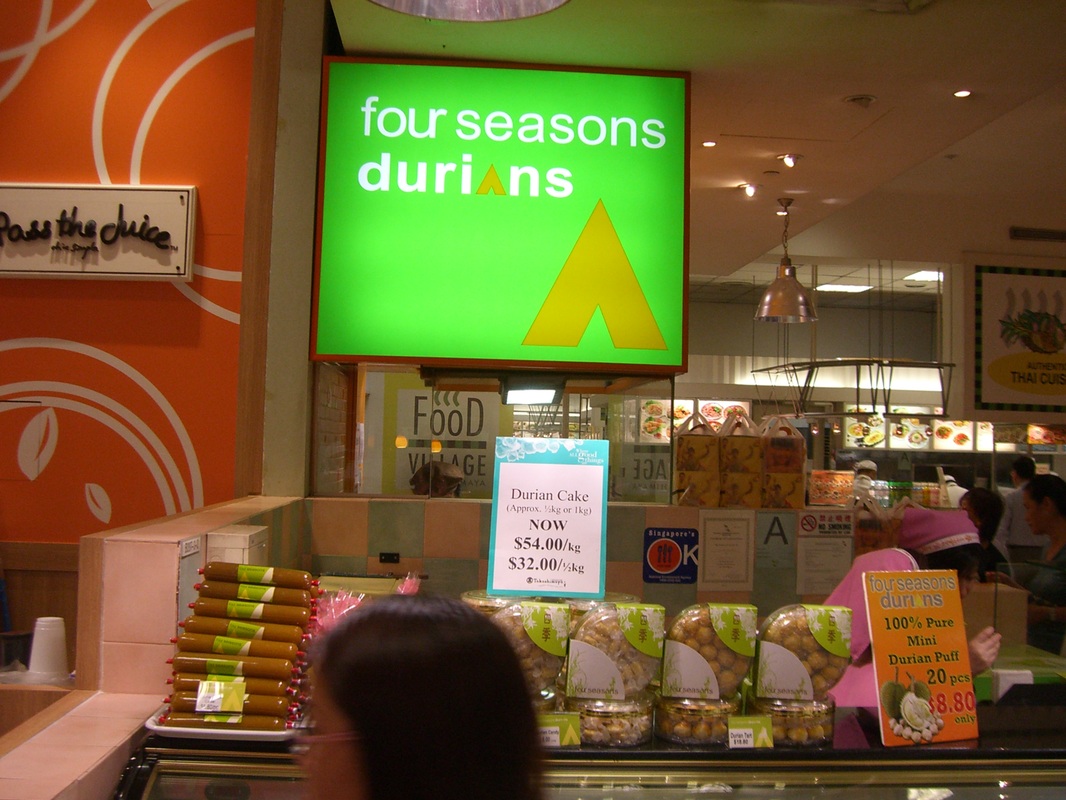n
At some point near the end of a recent dinner in Singapore, my friend and fellow Master Brian Julyan and I suddenly thought we smelled natural gas in the restaurant where we were dining; or mercaptan, to be precise, which is added to natural gas to make it detectable. The odor was strong enough that we called a server over to let them know about it. He answered quickly, “no gas, just durian.” The phrase had barely left his mouth when another server put down a plate of white puffy pastries in front of us. Brian looked at me and said tersely, “no way.” After all, he’d been burned once before and had never really forgiven me for it. “I’m going in,” I announced to the table. I then took one of the spongy pastries off the plate and quickly popped it into my mouth without further thought. What followed was an instant descent into a wormhole of culinary/sensory hell with the most bizarre combination of horrific aromas I’d ever experienced.
This wasn’t my first encounter with durian. In 2006 I went to Singapore for the first time with Brian Julyan and Evan Goldstein to teach the first ever MS Introductory Course in Asia. As we headed out to dinner one night, we drove past a fruit stand on the side of the street that had an enormous stockpile of bizarre green fruit. Someone in our party asked Tommy Lam, our local contact, about the fruit which resembled a cross between a green football and an armadillo. “Durian,” Tommy said. “Tastes good but smells really awful.” Being the ever curious and compulsive types, we had to know more. After all, how bad could something possibly smell? To satisfy our morbid curiosity Tommy drove around the block and then rolled down the car windows on our second pass. Instantly a stench filled the car—a combination of sh*t, road kill, and the essence of the putrefaction decay cycle (remember that from junior high science?). It was overwhelming. That people could even consider eating something that smelled so foul was beyond belief. But I was to learn more.
In Asia durian is called the “king of fruits.” It’s known for its large size (up to 12 inches long) and can weigh up to seven pounds. But more than anything, durian is legendary for its remarkably strong, repulsive odor; an odor so pungent that it’s banned on public transportation throughout Southeast Asia. The name durian comes from the Malay world “duri” which translates as thorn. There are some 30 known species of which nine produce edible fruit. Durian has been consumed in southeastern Asia since prehistoric times but has only been known to the western world for about 600 years. The earliest known European written record of the fruit is by Niccolò Da Conti, who traveled to Asia in the 15th century.
I remember asking students in that first Introductory class about durian and whether they liked it or not. The group was split right down the middle, with half crooning at the mere mention of the word and the other half utterly repulsed. There was no middle ground. Those who loved it professed to be addicted to it. One young woman said she considered durian to be an aphrodisiac or at the very least a delicacy. She went on to say that the combination of sweet melon-like fruit with jalapeno-peppery spiciness was to die for. However, someone else in the class said it should be outlawed completely. Several in the group also said that eating too much durian in a short duration of time could cause dangerously high blood pressure. I’m thinking that the olfactory bulb in your brain would probably explode long before that.
After that initial drive by experience, Brian, Evan, and I taunted each other for days about actually trying it. But it wasn’t until the very last day in the basement of one of the city’s well-known shopping mega-complexes that we actually had our opportunity. Wandering through the glaring fluorescent aisles, Brian and I came face to face with a kiosk called “Four Seasons Durians.” We looked at each other knowing that if we were ever going to taste durian this would be it. As fate—either fortuitous or cruel—would have it, there next to the register was a plate filled with small wafer cookies with a thin green filling. “Come on, Brian,” I said, “how bad can it be?”(Note to self, anytime someone asks that question the answer is probably going to be some variation of “as bad as possible”).
I took two of the cookies and handed one to a very reluctant Brian. As I popped the cookie into my mouth I experienced something that’s happened every time I’ve tried durian since—the slowing down or stoppage of time. Let me explain; whenever I’ve tried durian I’m reminded of the times when I was a kid riding my bike on a hot summer day and I wiped out on a neighborhood street that’s just been repaved. Just as I’m about to hit the pavement, time slows down and almost stops so I can smell the tar of the pavement, sense the heat coming off it, and then feel myself hitting it and bouncing a few times all in Sam Peckinpah slow motion. Eating durian is similar probably because the olfactory experience is so overwhelming that it short circuits the part of the brain that tracks time.
After eating my cookie I looked at Brian. His expression was somewhere between mortified and stunned. He looked at me and said with quiet desperation, “coffee! Now!” We raced up four endless escalators to a coffee shop and waited five very long minutes to be seated while the taste of green radioactivity bubbled away on our palates. Finally, we were seated and ordered black coffees. Brian didn’t speak for a long time. Finally, as he finished the second cup that was so strong it could revive a corpse he turned to me and said, “You, sir, have betrayed my trust.” I don’t think he’s ever forgiven me for it.
Back to the most recent incident. As I popped the durian pastry into my mouth, I was assaulted by that unique durian stench and experienced time stopping once again. Tragically. Gearoid Deverny, the third MS in our trio, described my expression as “like someone being electrocuted.” I sat quietly managing the sensory overload as best as I could while the conversation at the table and the din of restaurant went on around me. The experience was reminiscent of having a natural gas line installed in your mouth. I reached for water several times and then downed the most tannic red on the table in front of me. The stench and taste diminished after a few minutes, but was still there in force. It would remain for hours with the last remnant more than willing to make its presence known the next morning after repeated brushing and flossing. But I would survive to tell the tale.
What wine pairs well with durian? None is strong enough. Only something in the spirits world could possibly match the intensity and I’m not curious enough at this point to do any constructive research. As for your own durian adventures, you have been warned.
nn




